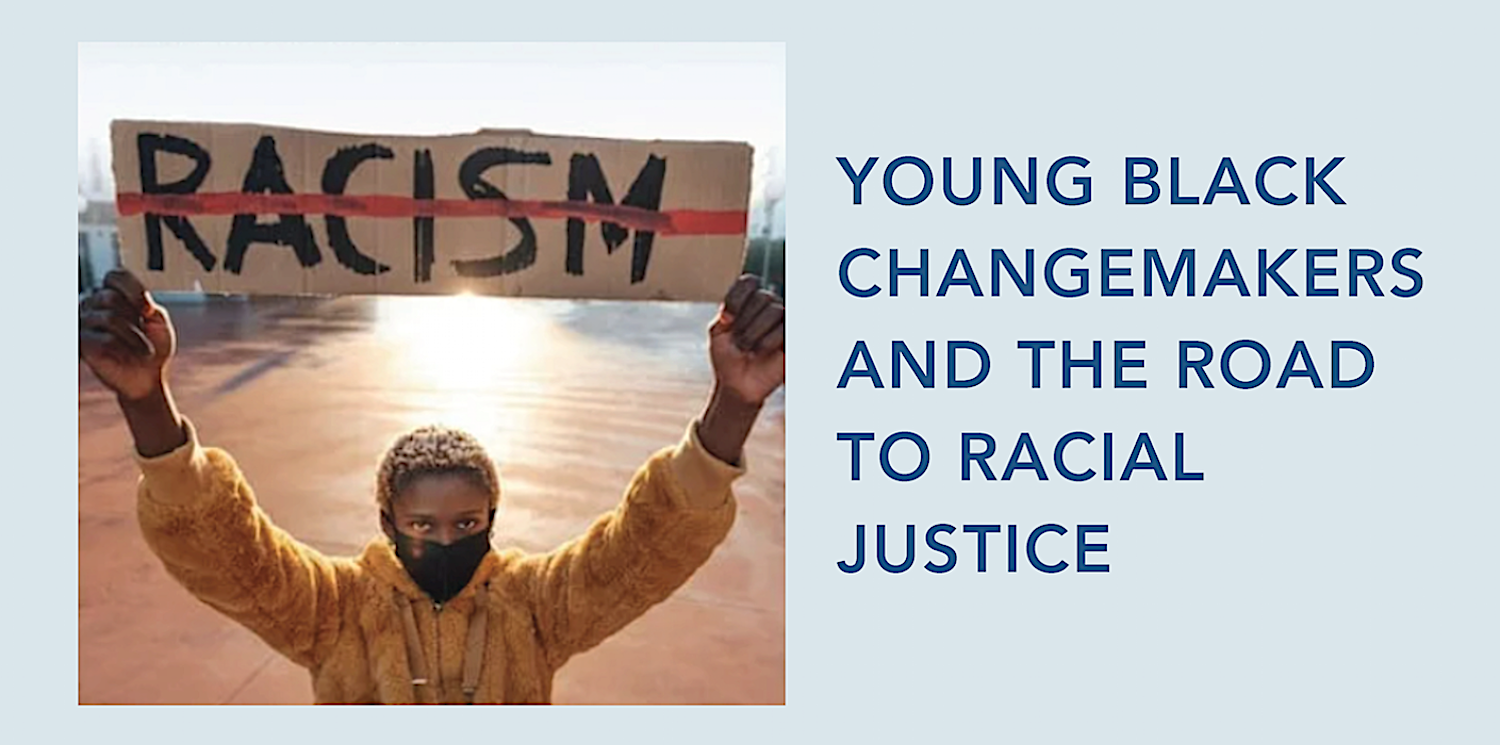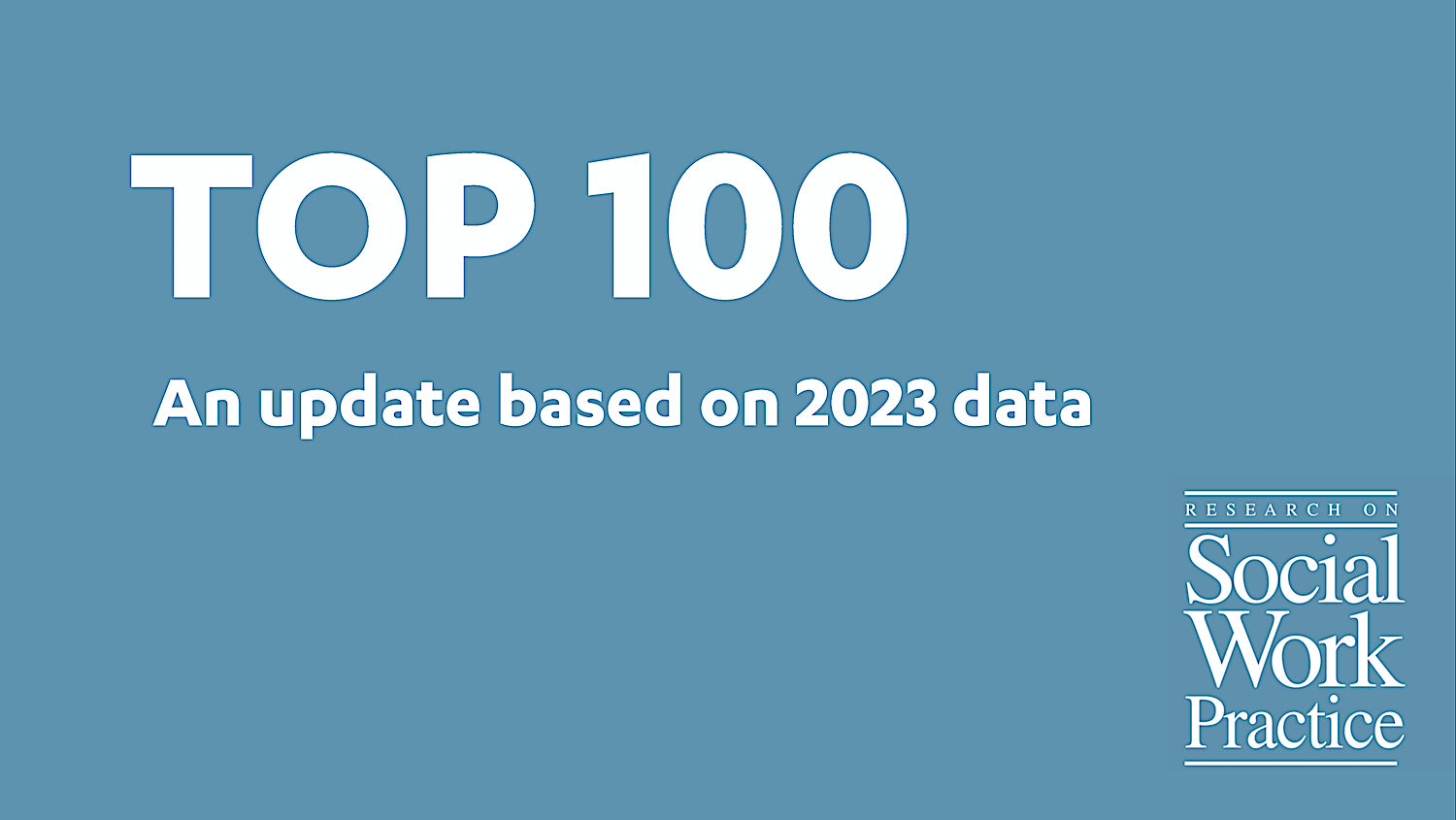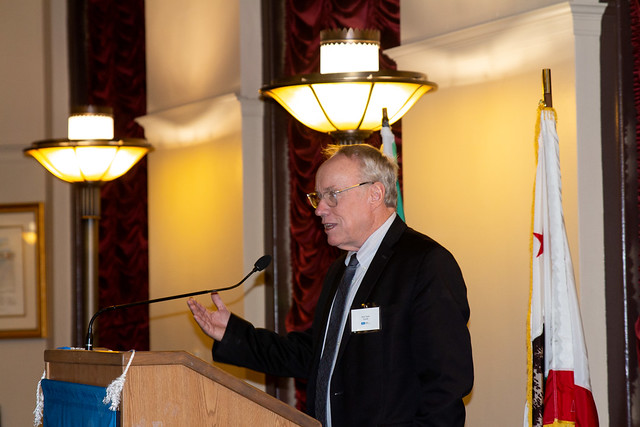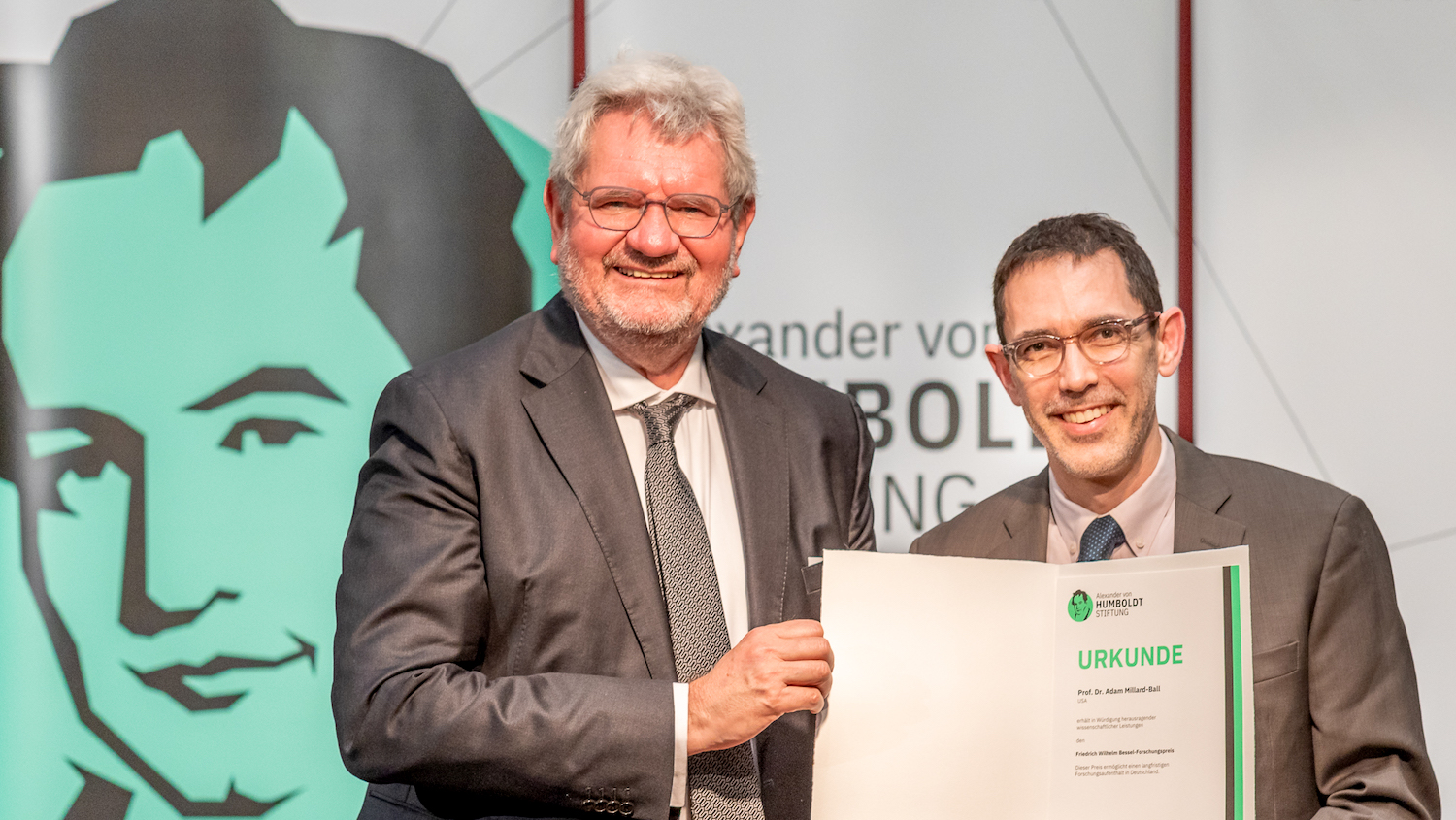
Millard-Ball Receives Friedrich Wilhelm Bessel Research Award
Adam Millard-Ball, professor of urban planning at UCLA Luskin, has received the Friedrich Wilhelm Bessel Research Award, which recognizes outstanding accomplishments by scientists and scholars from around the world. Trained as an economist, geographer and urban planner, Millard-Ball conducts research on transportation, the environment and urban data science. Award recipients are invited to collaborate with scholars based in Germany, and Millard-Ball is currently on sabbatical at the Mercator Research Institute on Global Commons and Climate Change in Berlin. Each year, the Friedrich Wilhelm Bessel Research Award, named after the noted German astronomer and mathematician, is given to 10 to 20 internationally renowned academics. The awards are funded by Germany’s Federal Ministry of Education and Research and administered by the Alexander von Humboldt Foundation, which promotes scientific advances, academic exchanges and cultural dialogue across borders. Award recipients were honored at a symposium in Bamberg, Germany, in March.
Persistent Gaps for Black Californians Would Take Over 248 Years to Close
Almost two decades ago, the inaugural State of Black California report, authored by UCLA Luskin Public Policy Professor Michael Stoll, was the first to provide a comprehensive look at how the material conditions and socioeconomic outcomes for Black Californians fared compared to other racial and ethnic groups. The latest report, published by the Black Policy Project, an initiative of the UCLA Ralph J. Bunche Center for African American Studies, builds upon its predecessor by providing a comparative analysis with a sobering message: Despite improvements in the quality of life for Black communities in California since 2000, racial inequality stubbornly persists and may continue to do so for centuries to come unless more is done. Using an extensive set of census data, researchers found:
- Black Californians’ overall socioeconomic outcomes improved by an average of 21.7% from 2000 to 2020, yet they still have the lowest index score of all racial minority groups and a 30% lower score than white Californians.
- For the first time in decades, the Black Californian population decreased in size, from 2.2 million to 2.1 million, and many moved out of urban centers.
- The biggest improvements in outcomes were bolstered by policy changes, particularly in relation to education and criminal justice.
Stoll, the faculty director of the Black Policy Project who also authored this year’s report, noted that Black Californians closed the overall racial gap in social and economic outcomes with whites by only 4% since 2000. “According to that rate of change, closing the racial gap between Black and white Californians would take over 248 years,” he said. — Kacey Bonner and Barbra Ramos
View the 2024 State of Black California report
Breaking Old Cycles and Envisioning New Futures
A new book by UCLA Luskin Social Welfare Professors Laura Wray-Lake and Laura Abrams tells the stories of Black youth in Los Angeles who tap into the strength of their communities to challenge injustice. “Young Black Changemakers and the Road to Racial Justice,” written with a third lead author, Elan C. Hope of North Carolina State University, and several students and recent graduates, tells the stories of 43 young Black people and their journey into a life of civic engagement. Drawing strength from their Black identities, families, communities and civic organizations, they work for a future of dignity and equality for all Black Americans. “We aim not to intellectualize the Black experience but to portray young Black changemakers’ humanity by sharing their stories in their own words,” the authors write. The book’s subjects are 13 to 18 years old, a time when they are “actively figuring out who they are, who they want to be and what they stand for. … Because young people are less entrenched in ‘the way things are’ in society, they can better envision new futures and break old cycles.” Contributors to the book with UCLA affiliations include Mariah Bonilla BA ’23 in public affairs; Elena Maker Castro PhD ’23 in human development and psychology; social welfare doctoral students Domonique Kianna Henderson and Sara Bloomdahl Wilf; Dominique Mikell Montgomery PhD ’23 in social welfare; Victoria Millet MSW ’22; and Jason Anthony Plummer PhD ’22 in social welfare. Channing Mathews of the University of Virginia also contributed. Authors of the book will join some of the young people profiled at a March 21 book launch.
Abrams, 2 Emeriti Professors on List of Top 100 Social Work Scholars
Three current and former UCLA Luskin professors are among the 100 most influential social work scholars, according to an updated ranking published in the journal Research on Social Work Practice. The list, based on citations in peer-reviewed journals that have been analyzed using several metrics, identifies “those individuals who have made substantial contributions to social work discourse over the course of their academic careers,” according to the study’s authors, David R. Hodge and Patricia R. Turner of Arizona State University. Laura Abrams, chair of UCLA Luskin Social Welfare, is ranked No. 30 on the global list of scholars. Abrams’ research focuses on improving the well-being of youth and adults with histories of incarceration. She is joined by Professors Emeriti Duncan Lindsey (No. 68), who taught at UCLA from 1996 to 2009, and the late Yeheskel “Zeke” Hasenfeld (No. 90), who taught from 1987 to 2014. “We are deeply honored by this recognition of UCLA scholars and change makers whose research and robust discourse have helped shape the field of social welfare,” said Anastasia Loukaitou-Sideris, interim dean of the Luskin School. Social work periodicals are “a crucial repository of the profession’s knowledge … [where] ideas are proposed, interrogated, tested and refined,” Hodge and Turner wrote. “In this update, we identify the top 100 scholars whose efforts across their careers have singled them out as leading contributors to the social work profession’s knowledge base.”
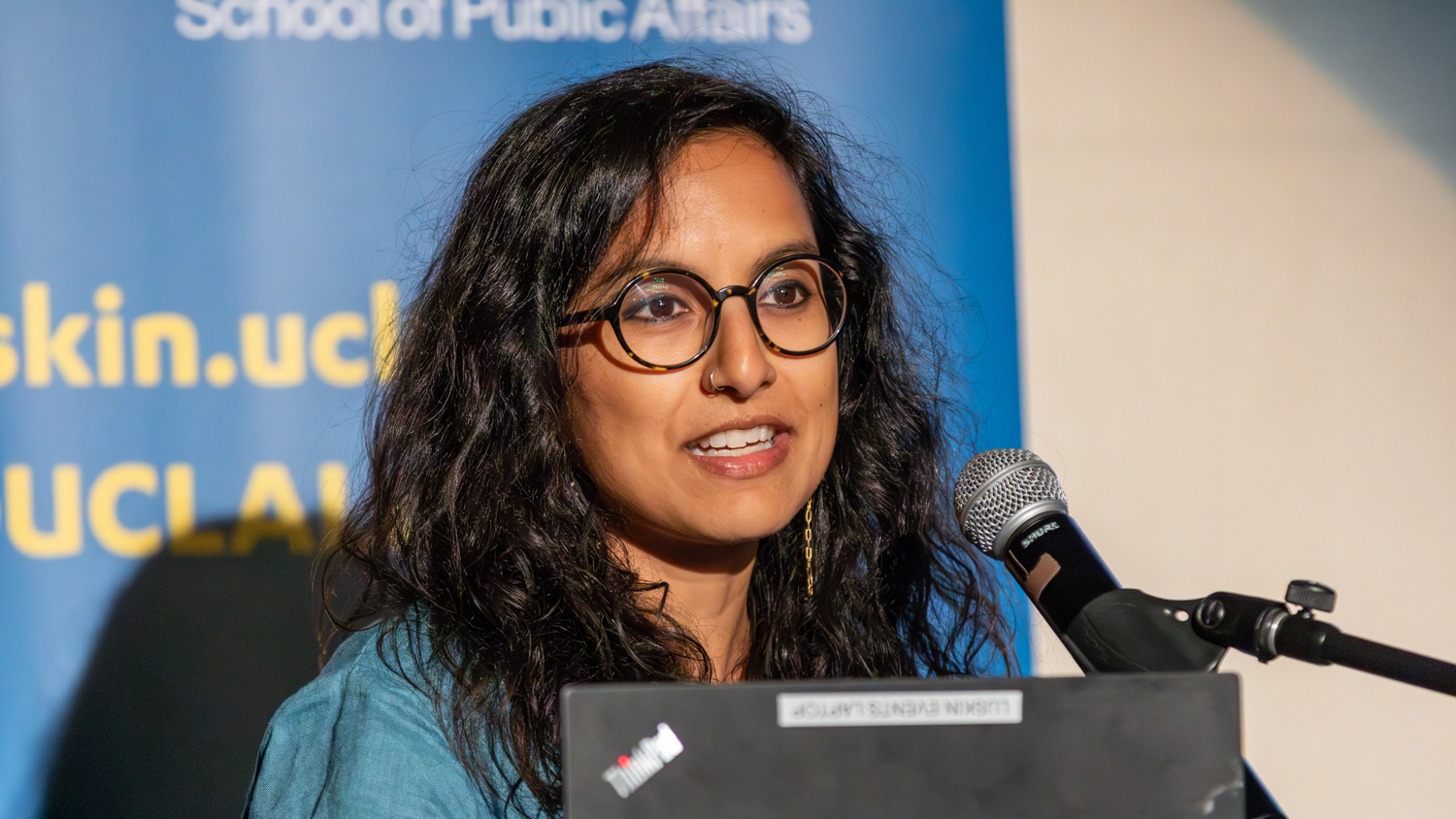
Regents’ Lecturer Sees Unity of Purpose Among Planners and Artists
Urban planning can seem bureaucratic and risk-averse — seemingly closed off to experimentation and imagination. “But I believe that planners have a lot of creativity,” said UC Regents’ lecturer Mallory Rukhsana Nezam during a Feb. 21 presentation in the Grand Salon of Kerckhoff Hall. “I always find that planners are the most excited about their arts and culture work,” Nezam said. She has worked with many planners who are driven toward social causes and social change. “And artists are also drawn to that. So, there’s an overlap of values there.” In her consulting practice, Justice + Joy, Nezam seeks to de-silo the way cities are run and build models for interdisciplinary collaboration. “What planners are actually doing is work that pertains to a built environment, and I think that’s really ripe for this intersection with arts and culture,” she said during a presentation that included a lively Q&A session with Professor Chris Tilly of UCLA Luskin Urban Planning and audience members. Nezam’s presentation was organized around reimagining planning in three ways — structural, process and spatial. Citing examples from across the country, she outlined ways in which city planners are incorporating artists into government, including a growing number of artists-in-residence. “These residencies are embedding artists deeply as co-creators and problem-solvers,” she said. “We’re not talking about artists just painting murals, we’re actually talking about artists being at the table when we’re discussing policy.” She expressed optimism about approaches that reward innovation. “We have to imagine something different — imagine a world we haven’t created yet. And that’s where this creative, radical imagination of arts and culture can come in.”
Download an audio recording or view photos on Flickr.
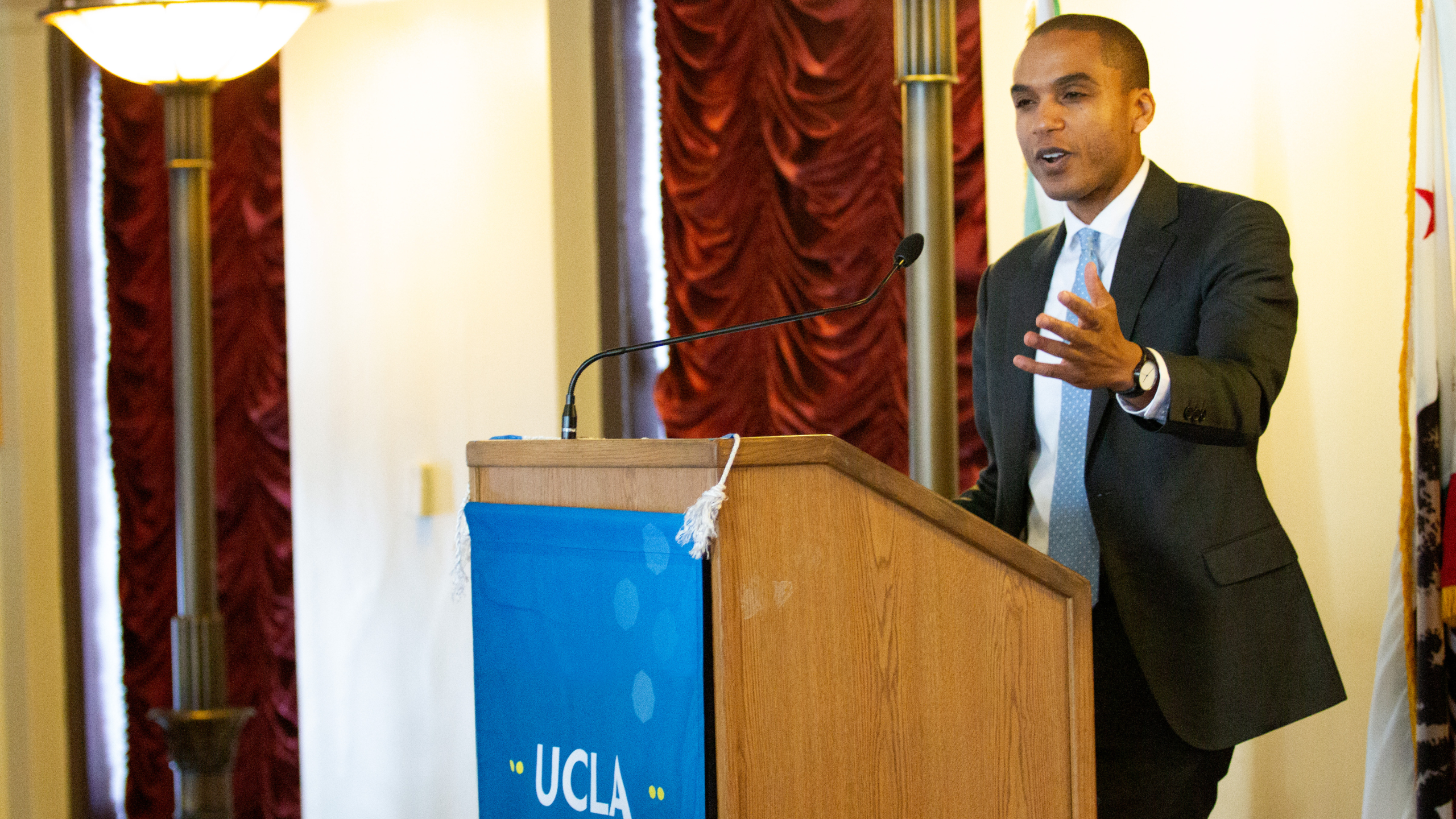
Keeping L.A. Connected Is Topic of Annual City Hall Day
Graduate students from throughout UCLA Luskin gathered in downtown Los Angeles on Feb. 16 to participate in the 18th UCLA Luskin Day at Los Angeles City Hall. The longtime tradition brought together students and local leaders from government, nonprofit agencies and the community to discuss and learn more about how the city can prioritize first-mile and last-mile investments in transportation. The Luskin School joined with UCLA’s Office of Government and Community Relations to partner with the office of city councilmember Katy Yaroslavsky to address transportation in preparation for large-scale events such as the Summer Olympics, soccer’s World Cup and the Super Bowl. Urban Planning Professor Brian Taylor of the Institute of Transportation Studies served as this year’s faculty advisor. Discussion touched on local projects such as the Metro Purple Line expansion and the pending Sepulveda Transit Corridor and Crenshaw/LAX Transit projects that will seek to speed up city transit and make it easier for riders to get to their preferred destinations. Other transit policy choices relating to street-level access for bikes, scooters, walking and rolling were mentioned, as were ridehail and parking policies. “Events like Luskin Day at City Hall provide students with invaluable hands-on experience to learn about public policy in local government,” said Kevin Medina, director of the Office of Student Affairs and Alumni Relations, which organized the event. The students’ policy recommendations will be presented to Yaroslavsky in May, Medina said.
View more photos from the day on Flickr
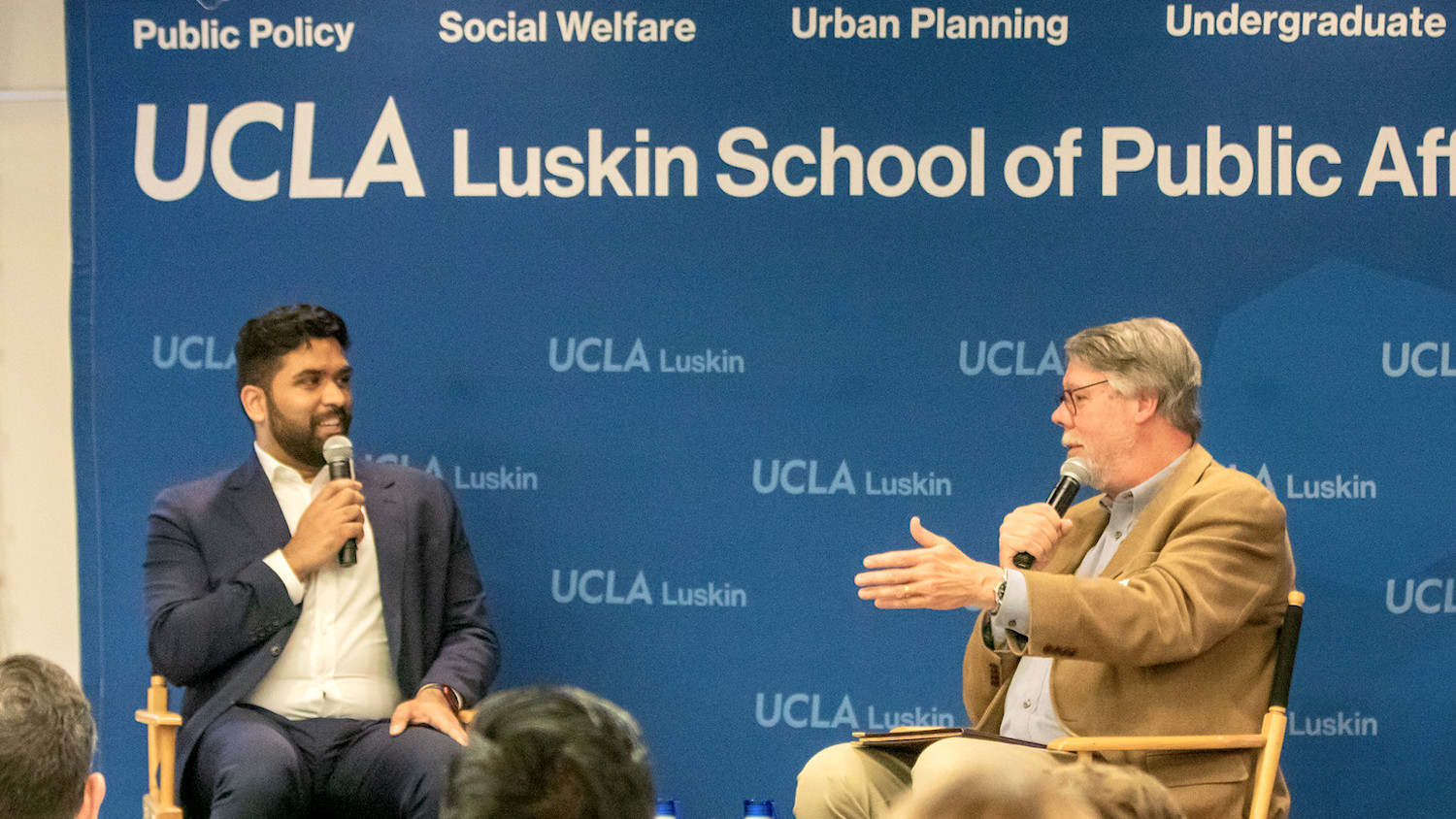
Keeping Guard Against the Forces Behind Jan. 6
Sandeep Prasanna MPP/JD ’15 returned to his UCLA Luskin alma mater to share a pressing message about the Jan. 6, 2021, attack on the U.S. Capitol: The threat is not over. Prasanna served as investigative counsel for the House Select Committee that issued a comprehensive, 800-page report on the insurrection. “January 6th was not just one event. January 6th was and is an ongoing effort to undermine our democratic institutions,” said Prasanna, whose team spent months interviewing or deposing about 1,000 right-wing extremists who carried out the attack. Now a senior advisor at the law firm Miller & Chevalier, he travels the country to speak with election officials about continuing threats to free and fair voting — including how to safeguard the essential workers who keep the democratic process running smoothly. Prasanna’s comments came at a Feb. 12 event marking the 25th anniversary of UCLA Luskin’s Public Policy program. Chair Robert Fairlie presented him with the 2022 MPP Alumnus of the Year Award, and Professor Mark Peterson led a conversation that touched on Prasanna’s time at UCLA. “I don’t think anyone starts a career in D.C. feeling prepared because things that you learn in a textbook are so different from interacting with people in real life,” Prasanna said. “But the thing they say about law school is that they teach you how to think like a lawyer. What I feel I learned at Luskin was how to do.” He encouraged UCLA Luskin students to take advantage of internships and other opportunities on the East Coast. “There’s a lot of work to do in California, for sure,” he said, “but I think D.C. could use more Luskin grads.”
Learn more about events marking Public Policy’s 25th anniversary.
View photos of Prasanna’s talk on Flickr.

